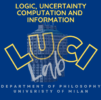Title: Building Trustworthy Autonomous Systems under Uncertainty: a Probabilistic Approach to Ethical Decision-Making
Abstract: Autonomous systems, such as driverless cars and drones, are increasingly deployed
across various fields, promising significant socioeconomic benefits. However, these
systems − especially fully autonomous ones − raise concerns regarding safety, ethics,
and compliance with legal and social norms.
Trustworthy autonomous systems must demonstrate reliability, safety, and ethical
behavior in complex, uncertain environments. Since it is impossible to program
responses for all potential scenarios, these systems need to handle uncertainty and
make ethically informed decisions within their reasoning processes. A critical component
in this respect is the formal verification of their decision-making mechanisms,
which requires a verifiable architecture and a sufficiently expressive formal language.
This thesis integrates two research areas: Computationally Grounded, Weighted
Doxastic Logic (COGWED) and SimpleBDI, which models an autonomous system’s
beliefs and reasoning cycles. The result is theWeighted Doxastic SimpleBDI (WeDo-
BDI) logic, which combines SimpleBDI’s reasoning cycle with probabilistic belief
representation. This allows the system to compute belief degrees based on sensor
data and probabilistic transitions. The WeDo-BDI semantics also includes a preference
relation that evaluates plans based on ethical principles and their probability
of causing violations.
An example scenario involving an unmanned aerial vehicle demonstrates how
WeDo-BDI operates under uncertainty and for ethical decision-making.
